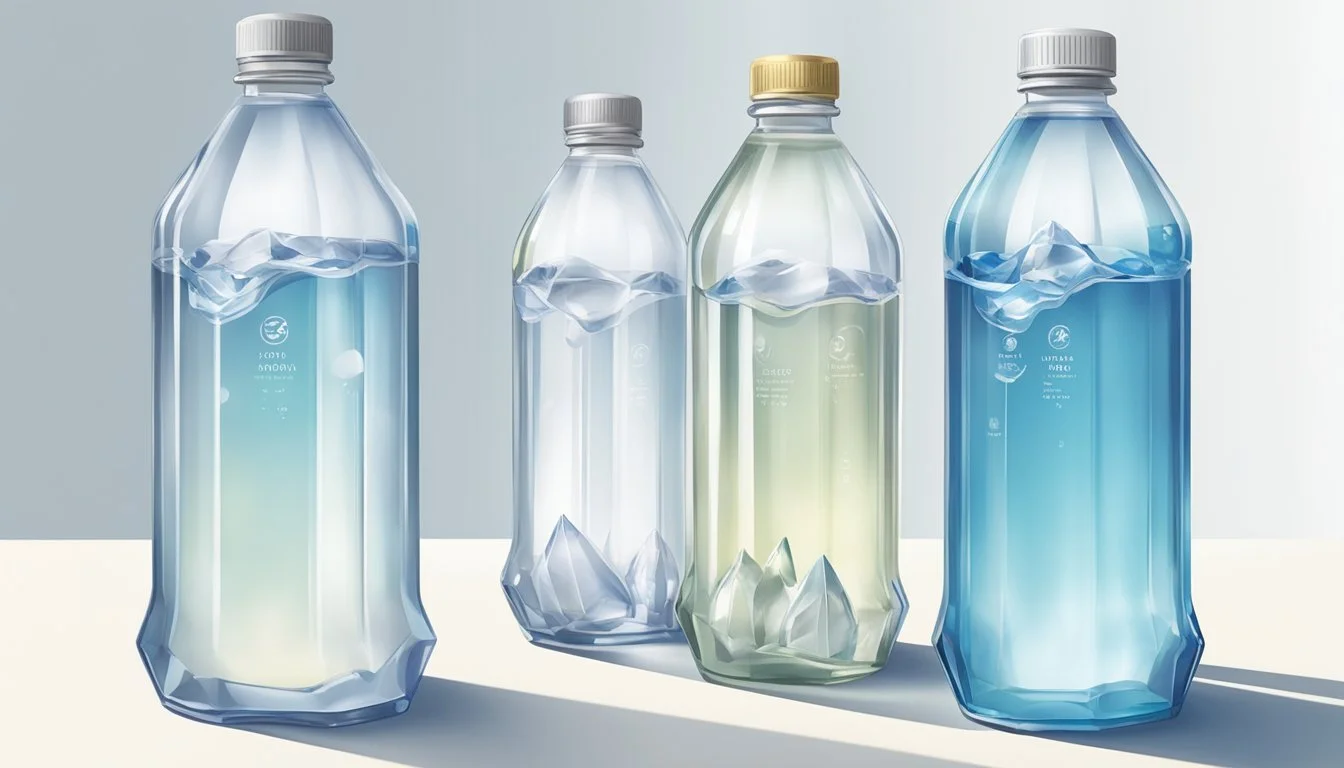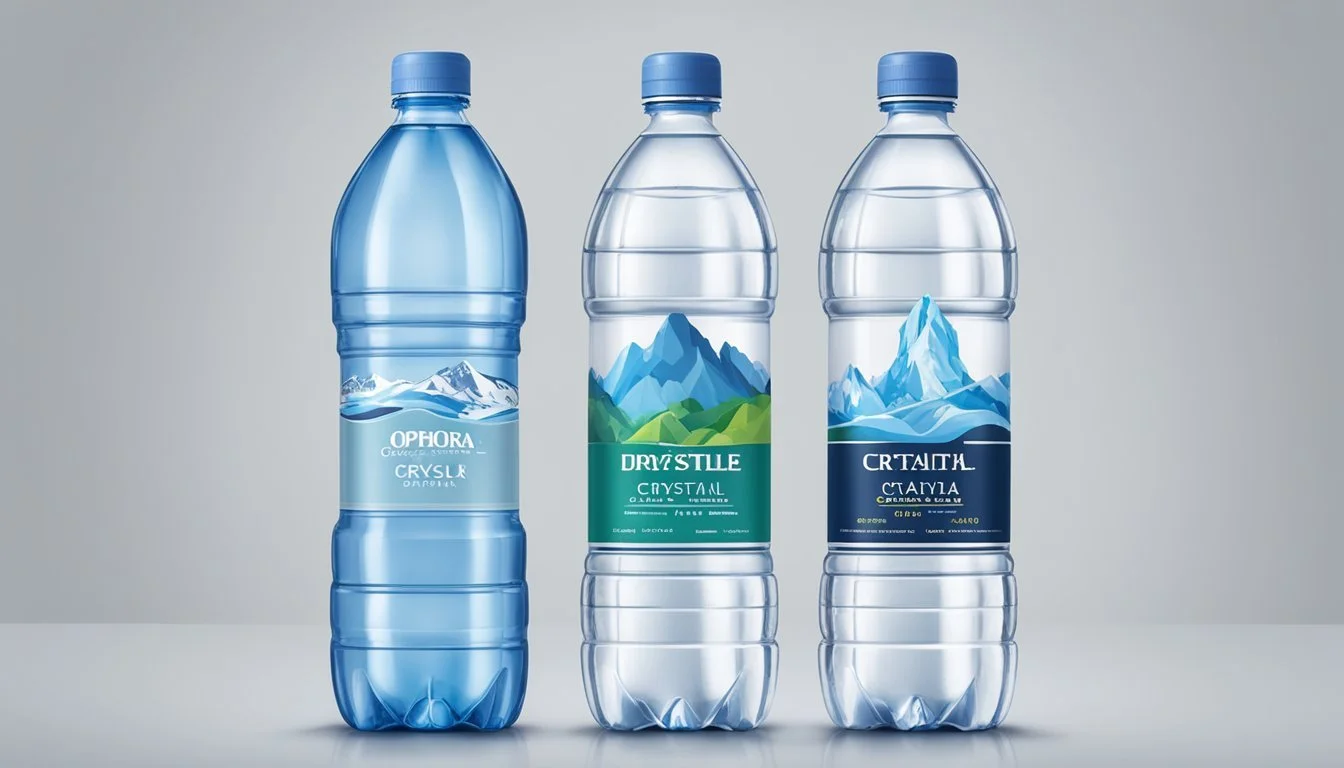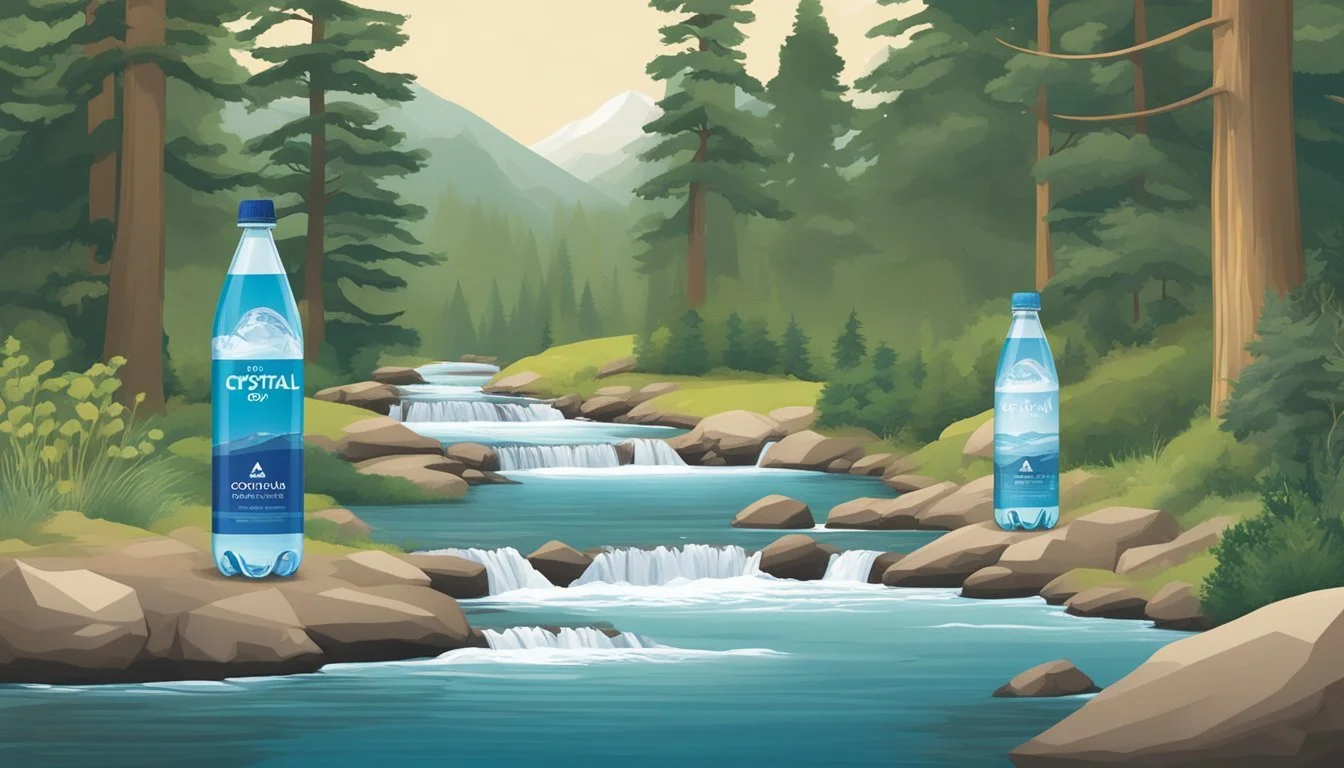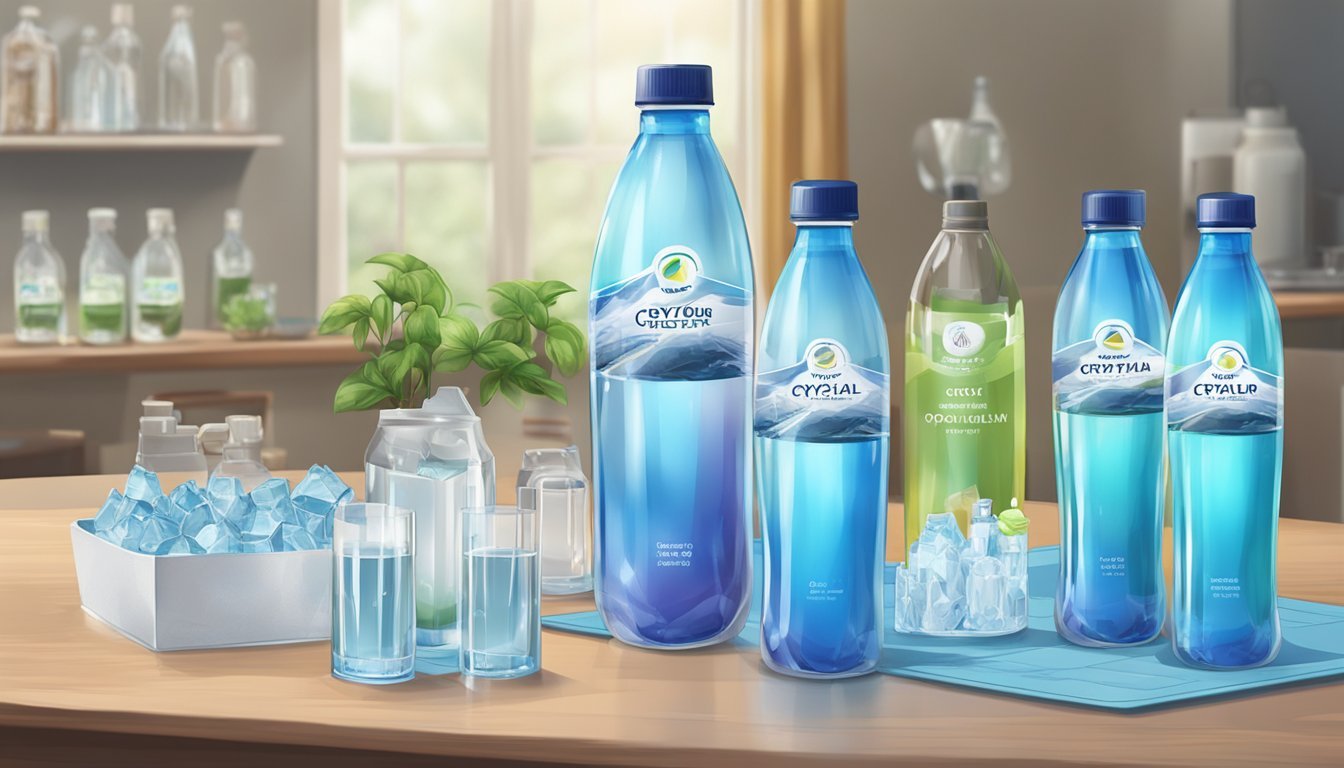Crystal Geyser vs. Ophora
Which Bottled Water is Better for You?
When it comes to selecting the best bottled water, Crystal Geyser and Ophora often come up as top contenders. Both brands have their own dedicated followings, but which one truly stands out? While Crystal Geyser offers a reliable and inexpensive choice, Ophora water boasts an exceptional level of purity and flavor that many consumers find unparalleled.
Crystal Geyser markets itself with "bottled at the source" claims, offering a straightforward option that is accessible and dependable. Despite its underwhelming taste, it remains a popular option due to its affordability and consistent quality. On the other hand, Ophora steps up the game by providing water that has undergone extensive purification processes, appealing to those who prioritize taste and purity.
Ultimately, each brand offers distinct advantages. Crystal Geyser appeals to budget-conscious consumers who seek a practical and consistent option. Meanwhile, those who value a richer, more refined flavor may find Ophora to be the superior choice.
Overview of Bottled Water Industry
The bottled water industry is a multibillion-dollar sector showing rapid growth over recent years. Global sales increased by 73% from 2010 to 2020, driven by the rising demand for convenient and perceived high-quality hydration options.
Consumers often choose bottled water for its taste, purity, and portability. Quality varies among brands, influenced by factors like water source and treatment methods. Popular brands include Aquafina, Crystal Geyser, and Nestlé Pure Life.
Aquafina is noted for containing microplastics and a pH of 6.4. Crystal Geyser offers a passable but not outstanding drinking experience. Nestlé Pure Life, despite being from the largest bottled water corporation, is described as average.
Companies in this industry source water from springs, wells, or municipal supplies. They use processes like filtration, reverse osmosis, and ozonation to ensure safety and taste. Labeling often indicates the source and treatment methods used.
Innovation and marketing strategies play a crucial role. Brands highlight unique selling points such as mineral content, alkalinity, or eco-friendly packaging to differentiate themselves. This competitive market continually evolves, reflecting changing consumer preferences and environmental concerns.
Analyzing Brand Histories
Crystal Geyser and Ophora have distinct backgrounds that contribute to their unique market positions. These histories shed light on how each brand developed its reputation and influenced their product offerings.
Crystal Geyser: Company Background
Crystal Geyser Water Company, established in 1977, is known for bottling its water at the source. The brand emphasizes natural spring water and has multiple bottling facilities located near natural springs across the U.S.
The primary goal has always been to provide pure and natural spring water without any additives. Despite scrutiny regarding contaminants, Crystal Geyser maintains a commitment to transparency and quality. They often share detailed water quality reports to assure customers of their standards.
Ophora: Company Background
Ophora Water Technologies, a newer entrant in the bottled water market, differentiates itself by focusing on ultra-purified, oxygenated water. Founded on the principles of advanced water purification technology, Ophora combines filtration with oxygen-boosting methods aimed at enhancing health benefits.
Ophora's founders leveraged cutting-edge technology to create water that not only hydrates but also purportedly supports detoxification and enhanced wellness. This approach positions Ophora as a premium brand targeting health-conscious consumers. They pride themselves on rigorous purification standards and innovative processing techniques.
Sourcing and Origin
Understanding the origin of bottled water brands provides insight into their quality and characteristics. Here, we will explore the sourcing details of Crystal Geyser and Ophora.
Crystal Geyser: Water Source
Crystal Geyser sources its water from multiple natural springs across the United States.
This brand ensures that each bottle is bottled at the source, preserving the natural mineral content. Crystal Geyser uses a double disinfection process to maintain purity.
These springs provide water with a pH of 6.9, which is close to neutral. An additional advantage is that the water contains no added minerals, maintaining its natural taste. Depending on the source, it might have a trace of naturally occurring fluoride, up to 0.7 parts per million.
Crystal Geyser emphasizes environmental sustainability, with a notable effort in using 100% recyclable bottles.
Ophora: Water Source
Ophora sources its water from specific, certified natural springs. These springs are carefully selected for their clean and mineral-rich properties.
Ophora goes a step further by enhancing its water through a proprietary process that includes oxygenation and ionization. This process aims to boost the water’s health benefits, providing enhanced hydration and detoxification.
The water undergoes rigorous purification to ensure high standards of quality. Additionally, Ophora maintains a focus on sustainability, using eco-friendly packaging and sustainable practices at their bottling sites.
These specialized methods make Ophora's water distinct in the market, combining nature's purity with advanced technological enhancements.
Water Quality and Purity
Crystal Geyser and Ophora are two brands offering distinct attributes regarding water quality and purity. This section examines mineral content and pH levels to provide a comprehensive comparison.
Mineral Content Comparison
Crystal Geyser sources its water from natural springs, ensuring a consistent mineral profile. It typically contains calcium, magnesium, and potassium. The total dissolved solids (TDS) in Crystal Geyser, which measures the concentration of minerals, averages around 90-110 mg/L.
Ophora, designed as an ultra-pure water, employs advanced purification methods such as ozonation and reverse osmosis. This results in significantly lower mineral content, with TDS often below 10 mg/L. Ophora promotes itself as a choice for those seeking minimal impurities.
PH Level Assessment
Crystal Geyser's pH level usually ranges between 6.5 and 7.5, making it neutral to slightly alkaline. This balance is common for natural spring water, providing a taste that is both refreshing and smooth.
Ophora, focused on alkaline water enthusiasts, maintains a pH level between 8.0 to 9.5. This higher pH is achieved through additional filtration processes aimed at boosting alkalinity. Alkaline water is often preferred by those looking to enhance hydration and balance body pH levels.
Health and Safety Standards
Crystal Geyser and Ophora waters adhere to rigorous health and safety standards. This section examines the specific health benefits and contaminant safety measures of each brand.
Health Benefits Analysis
Crystal Geyser and Ophora offer distinct benefits. Crystal Geyser states a natural source from alpine springs, focused on providing mineral-rich hydration.
Ophora touts advanced filtration and oxygenation techniques aimed at increasing energy and cellular repair. Their water contains electrolytes beneficial for hydration and physical performance.
Consumers favoring natural mineral content might lean towards Crystal Geyser, while those looking for enhanced oxygenation might find Ophora more appealing. Both brands position themselves as safe and healthful choices, but their unique benefits cater to different preferences.
Contaminants and Safety
Crystal Geyser faced scrutiny for contaminants such as arsenic, suggesting a potential risk despite its natural source claims. Reports like the EWG analysis noted low scores for this brand, affecting its trustworthiness.
Ophora undergoes rigorous filtration, targeting contaminants, including heavy metals and radiological elements, ensuring safe drinking water. Their purification process aims to remove impurities that may compromise health.
When comparing safety, Ophora might be seen as more reliable due to its purification methods. Crystal Geyser's reputation requires cautious consideration, particularly for those prioritizing contaminant-free water consumption.
Taste and Hydration Experience
Crystal Geyser and Ophora bring distinct experiences to the table when it comes to taste and hydration. Here, we will examine the flavor profiles and the hydration and aftertaste of each brand.
Flavor Profiles
Crystal Geyser offers a taste that many consider clean and light. The water has a subtle mineral presence, which makes it refreshing yet not overwhelming. It does not impart any significant flavors, making it a neutral option for those looking for a simple hydration experience.
In contrast, Ophora is often described as having a slightly sweet and crisp taste. This water undergoes a unique purification process that retains beneficial minerals while removing impurities. The resulting flavor is markedly pure and smooth, making each sip enjoyable.
Hydration and Aftertaste
The hydration experience with Crystal Geyser is solid. The water goes down smoothly and provides a refreshing feeling, suitable for daily hydration. The aftertaste is minimal, leaving a clean palate without any lingering flavors, which appeals to individuals who prefer a straightforward drinking experience.
Ophora excels in both hydration and aftertaste. Due to its advanced purification process, it provides superior hydration, making it an excellent choice for those concerned about optimal daily water intake. The aftertaste is slightly sweet and satisfying, contributing to its reputation as a premium water choice. The lingering freshness ensures a pleasant drinking session without any unwanted residues.
Packaging and Sustainability
Crystal Geyser and Ophora have distinctive approaches to packaging and sustainability. These differences can significantly affect consumer choice, particularly for those concerned with environmental impact and product design.
Bottle Design and Materials
Crystal Geyser typically uses plastic bottles for their water. While convenient and lightweight, plastic containers raise environmental concerns, especially regarding long-term waste and recycling challenges. The design of Crystal Geyser bottles focuses on practicality, with a simple, utilitarian look.
Ophora, on the other hand, opts for glass bottles. Glass is more environmentally friendly as it is fully recyclable and contributes less to pollution. Ophora's bottle design often appears more premium with a sophisticated aesthetic. This choice of material not only positions Ophora as a luxury brand but also appeals to environmentally conscious consumers seeking sustainable alternatives.
Environmental Impact
Crystal Geyser's reliance on plastic bottles means a larger environmental footprint. Plastic production and disposal contribute to pollution and deplete natural resources. Efforts to recycle plastic are often insufficient to counterbalance the negative effects.
Ophora's choice to use glass bottles significantly reduces its environmental impact. Glass recycling is highly efficient, and it can be reused indefinitely without loss of quality. Furthermore, glass production creates fewer emissions compared to plastic. Ophora's commitment to using sustainable materials highlights their broader environmental responsibility and appeals to consumers who prioritize eco-friendly products.
Brand Positioning and Consumer Perception
Crystal Geyser and Ophora have distinct market presences and consumer perceptions. Both brands have carved out unique niches, influencing their customer loyalty and trust.
Market Presence
Crystal Geyser has been a recognizable name in the bottled water industry for years. Known for its natural alpine spring sources, it is widely available in major retail outlets. The brand promotes its eco-friendly bottling practices and affordability, making it accessible to a broad customer base.
Ophora, on the other hand, targets a niche market with premium offerings. Positioned as a luxury water brand, it emphasizes advanced purification processes and health benefits. The limited availability, often through specialty stores and direct email marketing campaigns, reinforces its exclusivity.
Customer Loyalty and Trust
Crystal Geyser enjoys high customer loyalty due to its consistent product quality and affordability. Consumers trust the brand for delivering clean and naturally sourced water. Independent reviews often highlight its balance of taste and price, contributing positively to its reputation.
In contrast, Ophora builds trust through its innovative purification methods and health-oriented marketing. The brand taps into the wellness market, appealing to consumers looking for superior hydration solutions. Customer loyalty is bolstered by the brand's transparent practices and premium positioning, which often translates into repeat purchases from health-conscious buyers.
Certifications and Quality Reports
Examining the certifications and quality reports of Crystal Geyser and Ophora can provide significant insights into their standards. This analysis focuses on independent testing and the transparency of their published reports.
Independent Testing
Both Crystal Geyser and Ophora undergo various independent tests to ensure water quality. Crystal Geyser, for example, was evaluated by the Environmental Working Group (EWG) and received low marks due to the presence of certain contaminants. This does not necessarily imply toxicity but indicates the need for better filtration.
Ophora often highlights its advanced filtration systems that are structured to remove a wide range of impurities. The company points out their compliance with stringent safety standards. Although detailed third-party results are less frequently spotlighted, available reports generally indicate lower levels of common bottled water contaminants like microplastics and heavy metals.
Published Reports and Transparency
Transparency in reporting is key for consumers. Crystal Geyser provides water quality reports on its website, including information about contaminants and pH levels. However, the details can sometimes be vague and not frequently updated. Users can download these reports in PDF format for a deeper dive into the specifics.
Ophora emphasizes transparency through highly detailed online reports. These include comprehensive data on mineral content, contaminant levels, and filtration efficacy. Consumer access to updated documents ensures that buyers can make informed decisions. Additionally, Ophora's commitment to publishing findings from independent labs enhances its credibility and openness.
Comparative Analysis of Cost and Value
When evaluating Crystal Geyser and Ophora, it is essential to consider their costs and the value they provide. We will examine their price points and assess the overall value they bring to consumers.
Price Point Assessment
Crystal Geyser offers a variety of products at different price points. For instance, Crystal Geyser Natural Alpine Spring Water costs approximately $0.34 per bottle, while their sparkling variant is priced at $0.99. These competitive prices make Crystal Geyser accessible to a broad range of consumers looking for budget-friendly bottled water.
On the other hand, Ophora is positioned as a premium brand with advanced purification processes and added oxygen. This results in higher prices compared to Crystal Geyser. While specific retail prices can vary, Ophora bottled water typically costs significantly more, reflecting its premium branding and enhanced features.
The price differential is indicative of the distinct market segments each brand targets. Where Crystal Geyser appeals to cost-conscious consumers, Ophora caters to those willing to pay a premium for perceived health benefits.
Value for Money
In terms of value, Crystal Geyser provides considerable benefits for its price. Bottled at natural alpine springs, the water is marketed as pure and natural, appealing to consumers who prioritize natural sources and affordability. Additionally, buying larger packs, often available at retailers like Costco, can further reduce the cost per unit, enhancing its value proposition.
Ophora, with its higher price point, offers added benefits such as advanced purification, the introduction of oxygen, and claims of better hydration and health benefits. For consumers who prioritize these features, the higher cost may be justified by the perceived improvement in water quality and health effects.
While Crystal Geyser is a cost-effective option with a solid reputation among budget-focused consumers, Ophora's value lies in its premium features and targeted health benefits. The choice between these two depends largely on individual consumer priorities, whether it's affordability or advanced health benefits.
More About Crystal Geyser
Acqua Pana vs Crystal Geyser: Which Bottled Water is Better?
Alkaline88 vs Crystal Geyser: Which Bottled Water is Better?
Aqua Carpatica vs Crystal Geyser: Which Bottled Water is Better?
Boxed Water vs Crystal Geyser: Which Bottled Water is Better?
Cascade Mountain vs Crystal Geyser: Which Bottled Water is Better?
Castle Rock vs Crystal Geyser: Which Bottled Water is Better?
Core Hydration vs Crystal Geyser: Which Bottled Water is Better?
Crystal Geyser vs CBD Living: Which Bottled Water is Better?
Crystal Geyser vs Crystal Lake: Which Bottled Water is Better?
Crystal Geyser vs Essence pH10: Which Bottled Water is Better?
Crystal Geyser vs Kirkland Signature: Which Bottled Water is Better?
Crystal Geyser vs Open Water: Which Bottled Water is Better?
Crystal Geyser vs Proud Source: Which Bottled Water is Better?
Crystal Geyser vs Richard's Rainwater: Which Bottled Water is Better?
Crystal Geyser vs Simple Truth: Which Bottled Water is Better?
Crystal Geyser vs Talking Rain AQA: Which Bottled Water is Better?
Crystal Geyser vs Weird Water: Which Bottled Water is Better?
Crystal Geyser vs Whole Foods 365: Which Bottled Water is Better?
Hawaii Volcanic vs Crystal Geyser: Which Bottled Water is Better?
Hawaiian Springs vs Crystal Geyser: Which Bottled Water is Better?
Ice Mountain vs Crystal Geyser: Which Bottled Water is Better?
Icelandic Glacial vs Crystal Geyser: Which Bottled Water is Better?
Just Water vs Crystal Geyser: Which Bottled Water is Better?
Liquid Death vs Crystal Geyser: Which Bottled Water is Better?
Mountain Valley Spring Water vs Crystal Geyser: Which Bottled Water is Better?
Nestle Pure Life vs Crystal Geyser: Which Bottled Water is Better?
Poland Spring vs Crystal Geyser: Which Bottled Water is Better?
Purely Sedona vs Crystal Geyser: Which Bottled Water is Better?
San Pellegrino vs Crystal Geyser: Which Bottled Water is Better?
Smartwater vs Crystal Geyser: Which Bottled Water is Better?
Solan de Cabras vs Crystal Geyser: Which Bottled Water is Better?
Topo Chico vs Crystal Geyser: Which Bottled Water is Better?
Whole Foods Italian Still Mineral water vs Crystal Geyser: Which Bottled Water is Better?
Zephyrhills vs Crystal Geyser: Which Bottled Water is Better?








